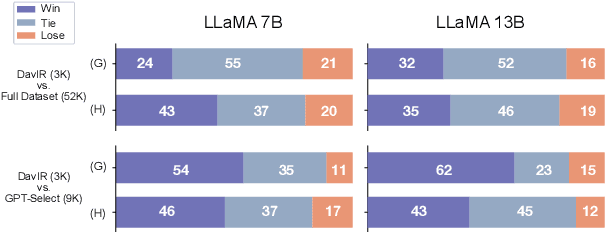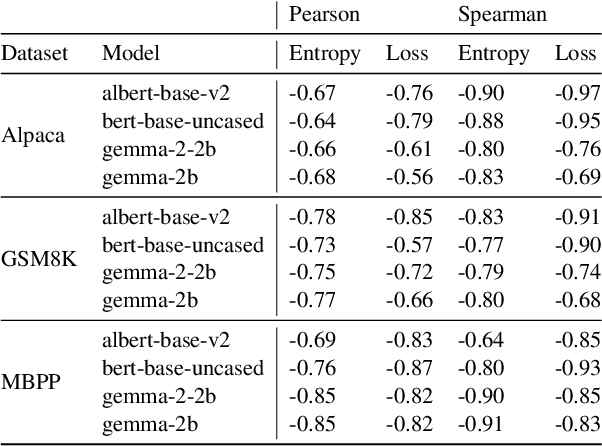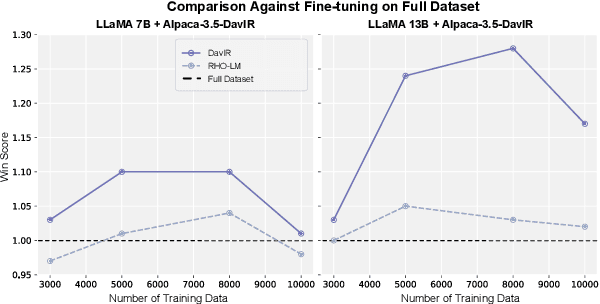LoBaSS: Gauging Learnability in Supervised Fine-tuning Data
Paper and Code
Oct 16, 2023



Supervised Fine-Tuning (SFT) serves as a crucial phase in aligning Large Language Models (LLMs) to specific task prerequisites. The selection of fine-tuning data profoundly influences the model's performance, whose principle is traditionally grounded in data quality and distribution. In this paper, we introduce a new dimension in SFT data selection: learnability. This new dimension is motivated by the intuition that SFT unlocks capabilities acquired by a LLM during the pretraining phase. Given that different pretrained models have disparate capabilities, the SFT data appropriate for one may not suit another. Thus, we introduce the term learnability to define the suitability of data for effective learning by the model. We present the Loss Based SFT Data Selection (LoBaSS) method, utilizing data learnability as the principal criterion for the selection SFT data. This method provides a nuanced approach, allowing the alignment of data selection with inherent model capabilities, ensuring optimal compatibility and learning efficiency. In experimental comparisons involving 7B and 13B models, our LoBaSS method is able to surpass full-data fine-tuning at merely 6% of the total training data. When employing 16.7% of the data, LoBaSS harmonizes the model's capabilities across conversational and mathematical domains, proving its efficacy and adaptability.
 Add to Chrome
Add to Chrome Add to Firefox
Add to Firefox Add to Edge
Add to Edge